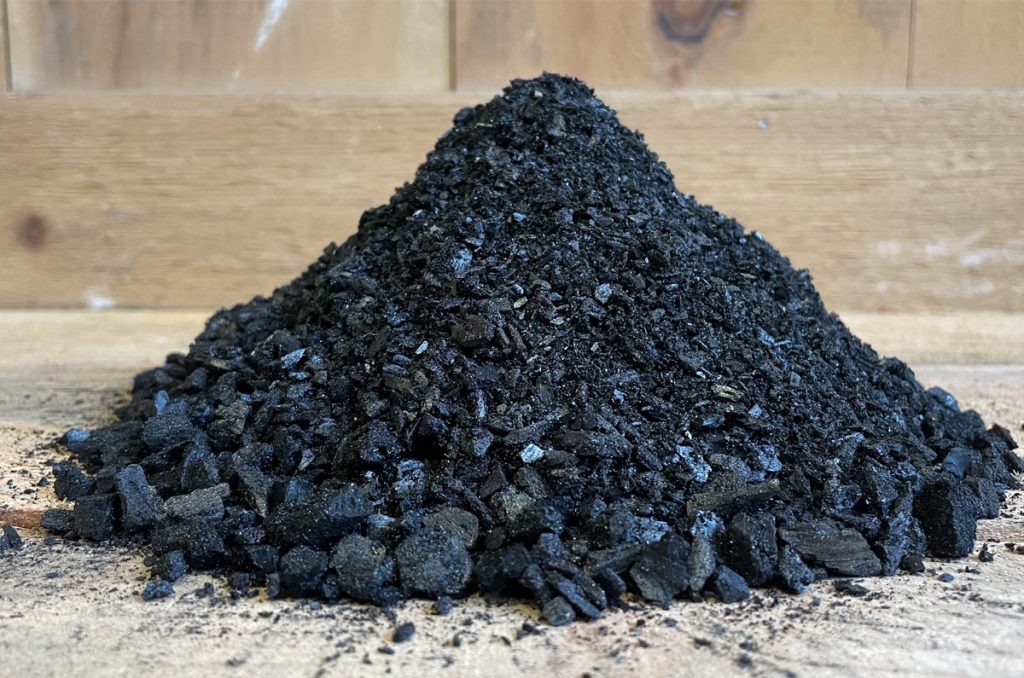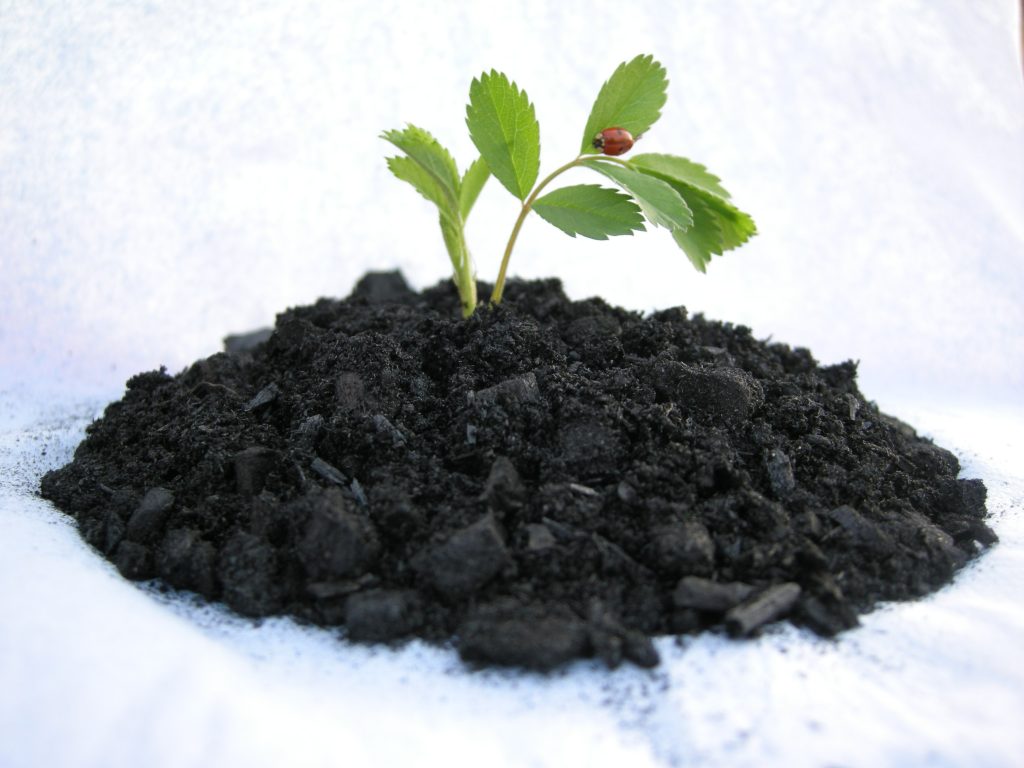In an era where sustainability is at the forefront of global conversations, innovative solutions are emerging to address the environmental impact of various industries. One such solution that holds promise for sustainable construction practices is the integration of biochar into concrete production. Biochar, a carbon-rich material produced through the pyrolysis of organic biomass, presents a unique opportunity to enhance the properties of concrete while mitigating environmental challenges associated with traditional concrete production. View the biochar making machine to make biochar efficiently.

Understanding Biochar
Biochar is a carbonaceous material obtained through the thermochemical decomposition of biomass in the absence of oxygen, a process known as pyrolysis. This ancient technique has been employed for centuries by different civilizations for agricultural purposes. In recent years, researchers and environmentalists have explored the multifaceted benefits of biochar in various fields, including agriculture, water treatment, and most recently, construction.
The Production Process of Biochar
Before delving into the application of biochar in concrete, it’s essential to understand the biochar production process. Biomass, which can include organic waste, wood chips, or agricultural residues, is subjected to pyrolysis in a controlled environment. This process yields a stable, carbon-rich material with a porous structure. The resulting biochar can be finely ground into a powder, creating a versatile additive for various applications.
The Benefits of Biochar in Concrete
Improved Strength and Durability
One of the primary advantages of incorporating biochar into concrete mixtures is its ability to enhance the strength and durability of the final product. The porous structure of biochar particles provides a framework for improved water retention and distribution within the concrete matrix. This, in turn, reduces the likelihood of cracking and increases the overall durability of the concrete.
Research has shown that biochar’s inclusion in concrete mixtures can positively affect compressive strength, flexural strength, and resistance to abrasion. These improvements contribute to longer-lasting concrete structures, reducing the need for frequent repairs or replacements.
Carbon Sequestration and Emission Reduction
Concrete production is a major contributor to carbon dioxide (CO2) emissions, primarily due to the calcination of limestone during cement manufacturing. The incorporation of biochar into concrete provides a unique opportunity for carbon sequestration. As biochar is a stable form of carbon, it can effectively lock away carbon in the concrete matrix, reducing the overall carbon footprint of the construction material.
By utilizing biochar in concrete, builders can play a role in mitigating climate change by sequestering carbon in a durable and long-lasting form. This approach aligns with global efforts to transition towards low-carbon and carbon-neutral construction practices.
Thermal Insulation
The porous nature of biochar contributes to its excellent thermal insulation properties. When added to concrete mixtures, biochar acts as a barrier to heat transfer, reducing the energy requirements for heating and cooling within buildings. This can result in increased energy efficiency and lower operational costs for structures constructed with biochar-infused concrete.
In regions with extreme temperature variations, biochar-enhanced concrete can contribute to maintaining more stable internal temperatures, enhancing the comfort and energy efficiency of buildings. This thermal insulation property adds an additional layer of sustainability to biochar-infused concrete.
Reduced Weight
Biochar produced by wood charcoal machine is significantly lighter than traditional aggregates used in concrete, such as sand and gravel. Incorporating biochar into concrete mixtures can lead to a reduction in the overall weight of the material. This weight reduction has practical implications for construction projects, especially in scenarios where load-bearing capacity is a critical factor.
Reduced concrete weight can also facilitate easier transportation and handling during construction, potentially lowering fuel consumption and associated carbon emissions. The lightweight characteristic of biochar-infused concrete expands its applicability to a wider range of construction projects.
Enhanced Water Management
The porous structure of biochar not only contributes to improved strength but also aids in water management within concrete structures. Biochar’s high water retention capacity allows it to absorb and release water as needed, contributing to better moisture control in the concrete matrix.
In regions prone to drought or experiencing water scarcity, biochar-infused concrete can play a role in sustainable water management. This is particularly valuable in applications such as road construction, where effective water management can prevent damage caused by freeze-thaw cycles.

Biochar-Making Techniques for Concrete Construction
Feedstock Selection
The first step in producing biochar for concrete construction is selecting appropriate feedstock. Various biomass sources can be used, including agricultural residues (such as rice husks or wheat straw), forestry residues, or organic waste. The choice of feedstock can impact the properties of the biochar and, consequently, its performance in concrete.
Pyrolysis Process
The pyrolysis process is crucial for obtaining high-quality biochar. It involves heating the selected biomass in the absence of oxygen to prevent combustion. The pyrolysis conditions, including temperature and residence time, influence the characteristics of the biochar produced. For concrete applications, a slow pyrolysis process is often preferred to achieve optimal biochar properties.
Grinding and Sieving
Once the biochar is produced, it needs to be processed into a fine powder to ensure uniform distribution in the concrete mix. Grinding and sieving the biochar particles to a specific size range are essential steps in preparing the additive for concrete production.
Mix Design
The incorporation of biochar into concrete requires careful consideration of mix design. Factors such as the type and proportion of biochar, cement content, water-cement ratio, and other additives need to be optimized to achieve the desired properties in the final concrete product. You may find some different designs on this page: https://bestonmachinery.com/charcoal-making-machine/jute-stick/.
Compatibility Testing
Before large-scale implementation, it’s essential to conduct compatibility testing to assess the interaction between biochar and other components in the concrete mix. This includes evaluating the setting time, workability, and mechanical properties of biochar-infused concrete.
Case Studies and Success Stories
Several research initiatives and construction projects have explored the practical application of biochar in concrete construction, showcasing its potential benefits.
The BioBuild Project
The BioBuild project, funded by the European Union, aimed to develop sustainable construction materials using bio-based additives, including biochar. Researchers explored the use of biochar in concrete mixtures to enhance both mechanical and thermal properties. The project demonstrated that biochar can effectively improve the compressive strength and thermal insulation of concrete, making it a viable option for sustainable construction.
Rice Husk Biochar in Concrete Blocks
In regions where rice is a staple crop, rice husk biochar has been investigated as a potential additive for concrete blocks. The study focused on the incorporation of rice husk biochar to replace a portion of the sand in concrete block production. The results indicated that the use of rice husk biochar not only improved the compressive strength of the blocks but also contributed to carbon sequestration, making it an environmentally friendly option.
Challenges and Considerations
While the integration of biochar in concrete construction shows great promise, several challenges and considerations need to be addressed:
Standardization and Certification
The lack of standardized guidelines for biochar-infused concrete poses a challenge for widespread adoption. Establishing industry standards and certification processes is crucial to ensure the quality, durability, and safety of biochar-enhanced concrete products.
Cost Implications
At present, the cost of producing biochar and incorporating it into concrete mixtures may be higher than traditional concrete production methods. However, as the technology advances and economies of scale come into play, the cost differentials are expected to decrease, making biochar-infused concrete more economically viable.
Long-Term Durability
While early research suggests improved durability with biochar-infused concrete, long-term studies are needed to assess the material’s performance over the life cycle of structures. Understanding how biochar interacts with concrete components and environmental conditions over time is crucial for ensuring sustained benefits.
Scaling Up Production
The scalability of biochar production to meet the demands of the construction industry is a significant consideration. Efforts to enhance production efficiency and explore alternative biomass sources can help address this challenge.
Conclusion
Biochar, with its unique properties and environmental benefits, has the potential to revolutionize the concrete construction industry. As the world seeks sustainable alternatives to traditional building materials, biochar-infused concrete emerges as a promising solution that not only enhances the performance of structures but also contributes to carbon sequestration and reduced environmental impact.
As research continues and more construction projects embrace biochar-infused concrete, the industry may witness a paradigm shift towards greener and more sustainable building practices. With ongoing efforts to address challenges, standardize production processes, and optimize cost-effectiveness, biochar stands poised to play a pivotal role in shaping the future of sustainable construction.